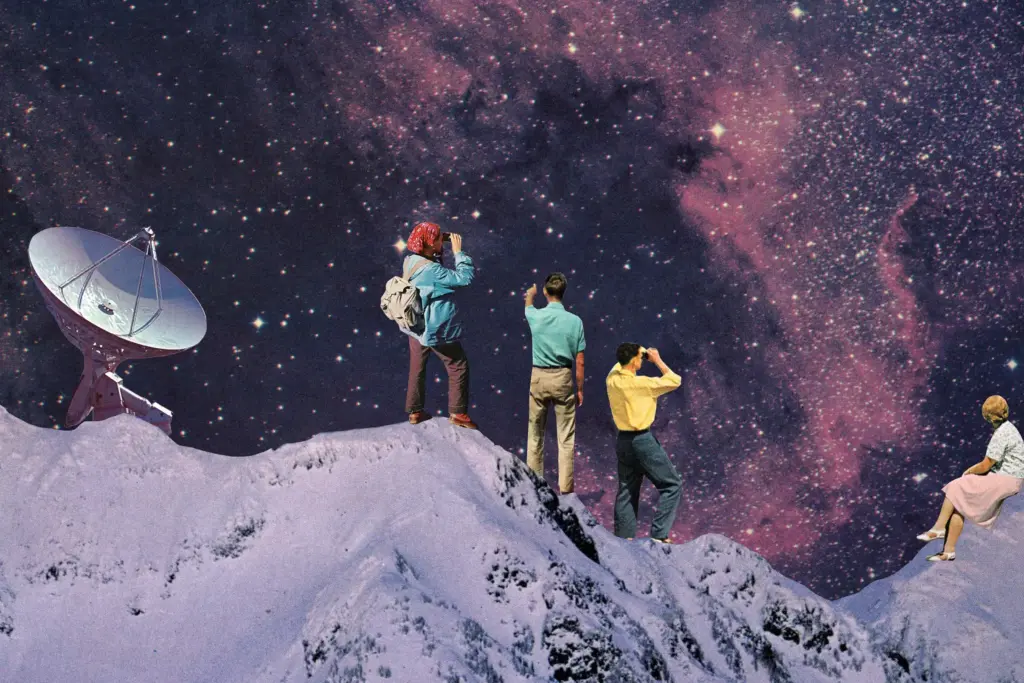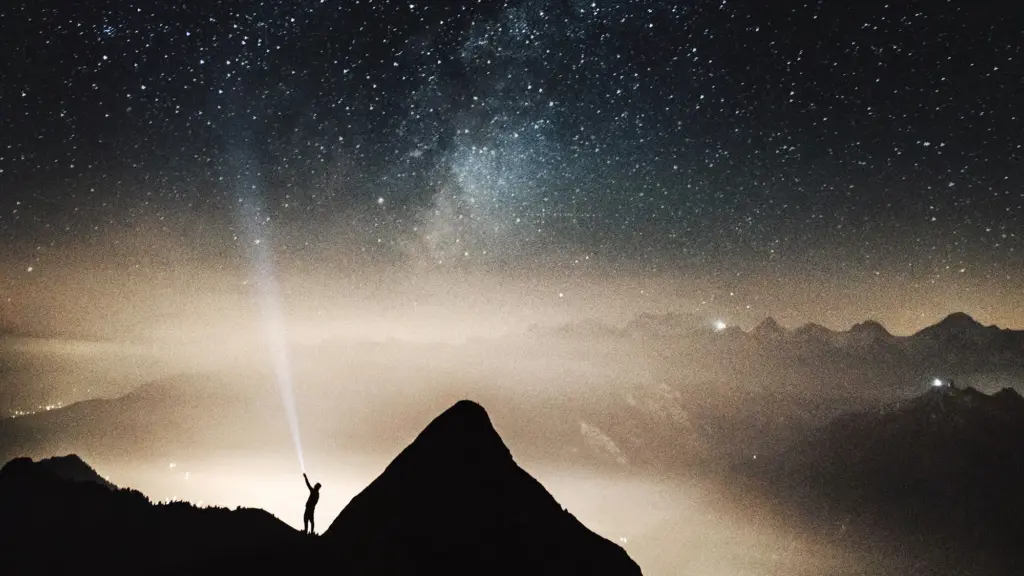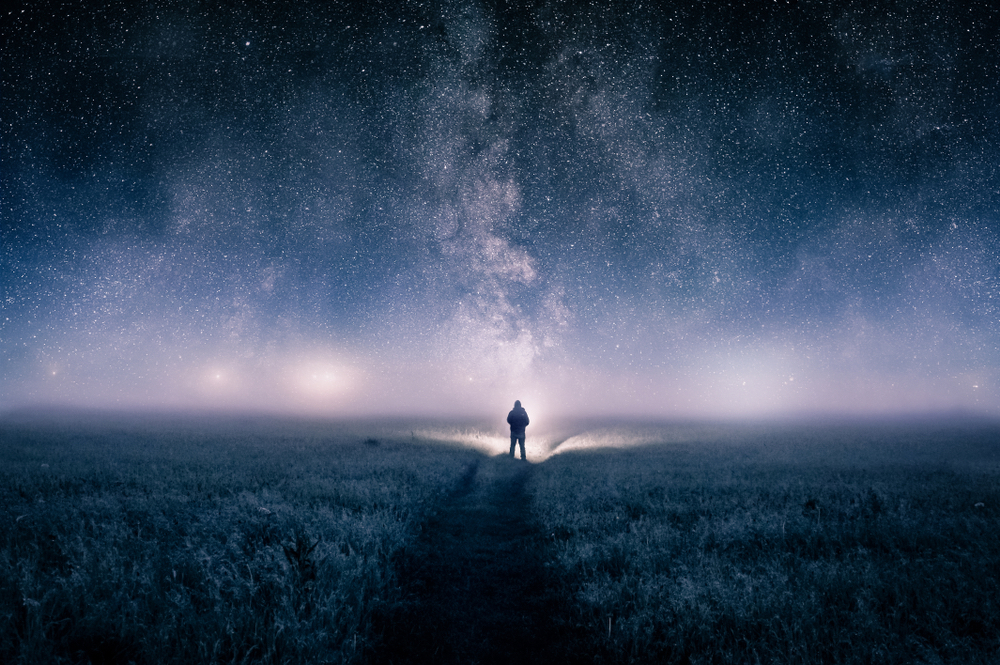If humanity lives in a barren universe, then we must create a philosophy that fills that void. And if we are truly alone in this vast cosmos, perhaps that’s wonderful—like being the only one home during summer break, free to do whatever you want.
What is life? Are we alone in the universe? These questions are captivating, and we’ve been asking them ever since we became aware of our own existence.
The field now known as astrobiology has emerged from our quest to answer these very questions. We are a curious species. We want to know the essence of life. Many of us wonder if aliens exist, and if they do, what they might be like.
Lately, discussions about extraterrestrial life have gained momentum. We’re beginning to grapple with the possibility that we might be alone—despite having no definitive evidence for or against alien existence. This leads us to a profound thought: if we are alone, then life on Earth is rare and precious. Perhaps we bear a unique responsibility to preserve and protect it.
But if we are not alone—if somewhere out there aliens are living, dying, forming governments, and debating which fast food chain is best—then maybe they, too, are gazing at the night sky, wondering if they are alone. Maybe they, too, are curious about us. Maybe they, too, question their responsibilities toward life in the universe.

Sometimes, I hear people lament that they were born centuries too late—or too early. Sure, there’s a romantic appeal to painting alongside the masters of the Italian Renaissance, experiencing ancient Japanese culture, or exploring Earth’s biodiversity during the Age of Enlightenment. Many of us have surely wondered what the future might hold—what it would be like to live in a time when we bravely venture to new star systems and explore strange new worlds. Or to imagine what life would be like if we could extend our lifespan by centuries, or even millennia.
But we shouldn’t lament living in the present. In fact, this moment is amazing. Right now, we are becoming a species with a truly global consciousness. We are only just beginning to understand ourselves, to ponder what life is—and whether we are alone. For an astrobiologist, there’s never been a better time to be alive.
In the early 1980s, we had not yet completed the Human Genome Project, nor had we confirmed the existence of planets beyond our solar system. These discoveries happened within the blink of an eye, cosmically speaking. Today, the Voyager probes have entered interstellar space (though technically still within the influence of our Sun!) and continue their journey as the farthest-reaching human-made objects.
We are now in a moment that demands clear thinking: how will humanity choose to alter itself through genetic engineering? Will we soon begin merging with machines? We’ve now detected thousands of planets orbiting other stars, and data suggests that planets may actually outnumber stars in our galaxy. Yet the question of whether we’re alone remains unanswered.
In 2015, Ellen Stofan, former NASA Chief Scientist and now Director of the National Air and Space Museum, predicted that we would find definitive evidence of alien life within the next few decades. If life does exist elsewhere, we have good reason to believe we will find it soon.
We’re building ever more sophisticated telescopes to discover exoplanets and to study the atmospheres of distant worlds orbiting other stars for signs of life. We’re launching more spacecraft equipped with advanced instruments to fly by, orbit, land on, and even soon soar over other worlds in our solar system. We’re exploring Mars, Europa, and Enceladus, searching for signs that they once harbored—or still harbor—life. Exciting scientific research is happening in the search for extraterrestrial life, and people are deeply intrigued by what we might find. I’m thrilled by how many genuinely believe we may not be alone, and long for a definitive answer.
Astrobiology is the scientific effort to better understand the nature of life in the universe—to explore how life begins on Earth or elsewhere, how it evolves over time, and how it might spread across the cosmos. It also invites us to reflect on ourselves and how our cultural understanding shapes our view of life and the universe.
Indeed, trying to understand life itself compels us to think from a cosmic perspective. We are just one species among millions on this still-unexplored planet. And our planet is likely only one of hundreds of billions—or even trillions—of others in the galaxy. It’s only in the last hundred years or so that we’ve even realized we live in one of many galaxies. The universe is vast beyond measure. Asking what life really is forces us to rethink our perception of reality. What is consciousness? What is real? How does our cultural framework influence our understanding of life?
So let us keep asking whether we are truly alone. Let’s revisit how humanity has sought to understand life—from the history of astrobiology as a science, to modern beliefs that aliens may have already visited us. From studying Earth’s own bizarre lifeforms, to speculating on what science fiction may teach us about preparing for first contact. Let’s explore how and why we send spacecraft to other worlds, and how the view of ourselves from space might have sparked a new era in human civilization. Let us also consider the deeper meaning that astrobiological exploration can bring to our existence.
For decades, the idea that we might have cosmic neighbors has lingered in the minds of humankind. It’s not just science fiction enthusiasts who ponder the possibility of extraterrestrial intelligence—ordinary people, too, seem strongly inclined to believe we are not alone. David Kipping, a professor at Columbia University, often notes that when discussing astronomy and the possibility of other life in the universe, people almost unanimously insist, “We can’t be the only ones!” And who can blame them? With billions of galaxies, each teeming with stars and planets, it seems implausible that life would exist solely on this pale blue dot.
Many scientists and media figures have echoed this sentiment, shifting the focus from if life exists to when we will find it—and what it might be like. In such a climate of excitement and speculation, the hope of encountering another intelligent species seems almost inevitable—unless, of course, you believe the aliens are already here.
The concept of a “crowded universe” resonates deeply with our intuition, reflecting some of the simplest yet most profound philosophical principles. Occam’s Razor encourages us to assume that “alien life” is the simplest explanation—it just feels right. The Principle of Mediocrity reminds us that our little corner of existence may not be so unique after all. And the Copernican Principle nudges us to let go of ancient, self-centered beliefs about humanity’s central importance in the cosmos. The notion that we are alone in this vast universe doesn’t just feel unlikely—it feels wrong, like clinging to a map where Earth still sits at the center of everything.
Perhaps Carl Sagan captured this wonder most elegantly in his novel Contact, which imagined humanity’s first encounter with intelligent life beyond Earth. “All those billions of worlds, and not a one with life but this?” “That the only intelligent life grows in this tiny, insignificant corner of the vast universe?” The film adaptation reinforces this very idea: “The universe is a pretty big place. If it’s just us, it seems like an awful waste of space.”
But this belief in cosmic neighbors is not only driven by intuition—it is also deeply rooted in science that inspires awe and curiosity. With the discovery of exoplanets, we’ve learned that our galaxy is filled with diversity: billions of planets orbit stars in so-called habitable zones where conditions might support liquid water. Earth’s oceans once seemed unique; now, hidden oceans on moons like Europa and Enceladus suggest that watery worlds may be common. Life on Earth has proven extraordinarily resilient, thriving in boiling vents, acidic lakes, and even radioactive wastelands—these extreme environments have expanded our imagination for where life might exist. Alien organisms may evolve in ways completely unfamiliar to us, governed by biochemistries we can scarcely imagine.

Even though the silence of the cosmos seems deafening, we must remember: our search has only just begun. From a cosmic perspective, we’ve only just learned how to listen, and future technologies may unlock entirely new ways of seeing the universe. Statistically, the probability of life elsewhere seems undeniable: with trillions of stars and untold planets, how could life not arise again somewhere? Even the discovery of the most unremarkable microbe on a distant world would be revolutionary, reminding us that Earth’s story is but one chapter in the vast book of cosmic possibility.
Still, these thrilling scientific reasons must not blind us to a sobering truth: belief in alien life remains, ultimately, a leap of faith. The question of whether we are alone is still one of the greatest mysteries in science. As Professor Kipping aptly puts it, the data paints a picture equally consistent with a life-filled universe and a cosmos where we alone stand beneath the stars. He warns that assuming alien life exists is simply optimism substituting for evidence. The most honest—and humbling—answer to the cosmic question remains: we don’t know.
Why might we be alone? The answer begins with the improbable origins of life itself. Abiogenesis—the process by which life emerges from non-life—might be so unlikely that Earth is an exception in an otherwise barren universe. Even under ideal conditions, life does not spontaneously appear; no experiment has yet succeeded in replicating this phenomenon. Earth’s unique attributes—a stable moon, plate tectonics, and just the right chemical balance—may represent a one-in-a-trillion coincidence. Evolution adds yet another filter: while microbial life may be common, the leap to intelligent life may require a cascade of near-ridiculous accidents and near-catastrophic events. If our evolutionary path is a cosmic lottery, then the universe might be full of unclaimed tickets. Despite all the stars and planets, it may still be incredibly rare for life to gain the ability to think, to dream.
Even if other civilizations exist, we may be forever separated by the vastness of time and space. Our efforts to listen to the stars have, so far, been answered only by unforgettable silence. Civilizations may flare into existence and vanish before their signals ever cross the galaxy. The distances involved are staggering—light itself takes thousands of years just to cross to the nearest stars—and interstellar travel remains more fiction than science. Worse still, the accelerating expansion of the universe is stretching the space between galaxies ever farther, trapping us in a kind of cosmic isolation. In the grandest possible sense, we may actually be alone—adrift in a magnificent but indifferent sea of stars, waving signals no one will ever see.
Despite our continued search—our knocking on the universe’s door—we may be utterly alone, practically and existentially. And for now, this is the reality we inhabit. Futurist John Michael Godier has observed that true loneliness in the universe can never be confirmed. We might discover alien life and know we’re not alone, but we can never confirm that we are alone—trapped as we are in the shimmering bubble of the observable universe. What if, centuries from now, our telescopes find no alien biospheres, no technological signs, only the eternal quiet of the cosmos? As Arthur C. Clarke famously said, “Two possibilities exist: either we are alone in the Universe or we are not. Both are equally terrifying.” To make sense of this profound solitude, perhaps philosophy is exactly what we need most.


